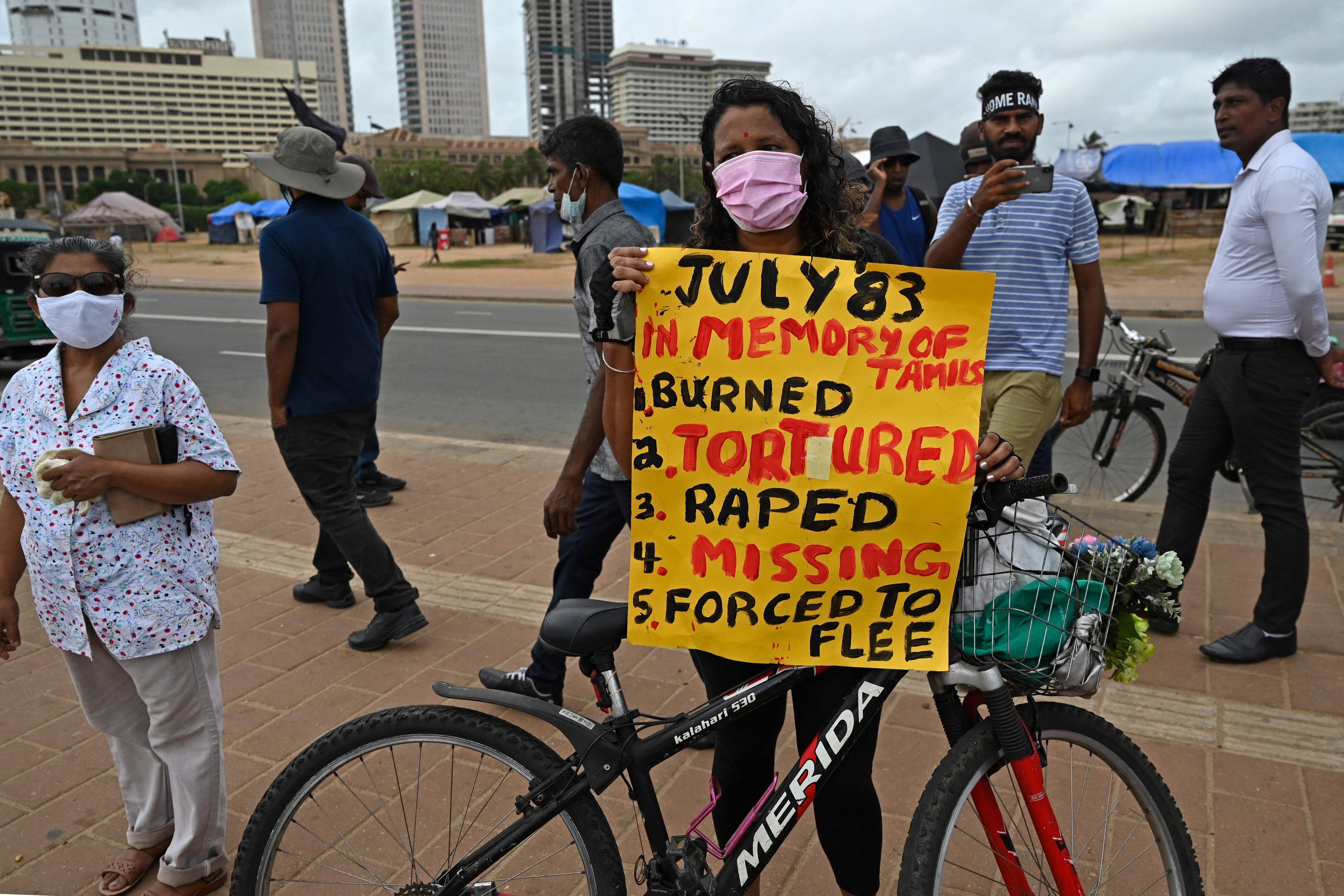Singapore has ‘unique opportunity’ to arrest exiled ex-Sri Lanka president, rights group says
Rajapaksa was defence minister during Sri Lanka’s civil war in which 100,000 people were killed
The immediate arrest of former Sri Lankan president Gotabaya Rajapaksa has been sought from Singapore by a rights organisation which has said that a criminal complaint filed by it will now give the country’s attorney general “a unique opportunity” to do so.
The International Truth and Justice Project (ITJP), in a 63-page-long complaint, accused Mr Rajapaksa of committing war crimes during the country’s decades-long civil war and of breaching the Geneva Conventions in 2009 when he was the defence minister.
Mr Rajapaksa fled the cash-strapped nation earlier this month soon after anti-government protesters stormed into the presidential palace, demanding his resignation. The former president, along his wife fled to the Maldives first, before landing in Singapore for a “private visit”.
Mr Rajapaksa emailed in his resignation from Singapore on 14 July as debt-ridden Sri Lanka battles the worst economic crisis since independence in 1948.
The South Africa-based rights group said there is now “a unique opportunity” to arrest Mr Rajapaksa on the basis of universal jurisdiction that the alleged abuses are subject to prosecution in Singapore.
“The criminal complaint that has been filed is (based on) verifiable information on both the crimes that have been committed, but also on evidence really linking the individual in question, who is now in Singapore,” Alexandra Lily Kather, one of the lawyers that drafted the complaint, told Reuters.
“Singapore really has a unique opportunity with this complaint, with its own law and with its own policy, to speak truth to power.”
The complaint argues Mr Rajapaksa violated international humanitarian law during the war, which includes incidents of murder, execution, torture and inhuman treatment, rape and other forms of sexual violence and starvation among others.
“Such linkage information makes Gotabaya Rajapaksa complicit in the willful killing of civilians and other heinous crimes, including torture, starvation and sexual violence committed in 2009,” Ms Lily Kather added.
Sri Lanka ended the 26-year-long civil war between separatist insurgents from the ethnic Tamil minority and government forces in 2009.
The Tamil community on Saturday marked 39 years of a bloody massacre that took place in 1983 when over 4,000 ethnic minority people were reportedly killed by mobs of the Sinhala majority backed by the government, following the murder of 13 Sri Lankan soldiers.

An estimated 100,000 people were killed in the civil war and about 20,000 people, mostly Tamils, went missing. Rights groups have accused both sides of abuses during the war.
“Detailed evidence is adduced to show that Rajapaksa issued direct orders by telephone to his former military buddies whom he appointed as major generals to command the offensive and watched the conduct of the battle live on surveillance and drone footage in headquarters,” the rights group said.
The ITJP had assisted in two civil lawsuits against Mr Rajapaksa, proceedings for one of which were served at a California parking lot in 2019, when he was a US citizen. The cases were withdrawn after he was granted diplomatic immunity upon becoming president later that year.
Join our commenting forum
Join thought-provoking conversations, follow other Independent readers and see their replies
Comments
Bookmark popover
Removed from bookmarks